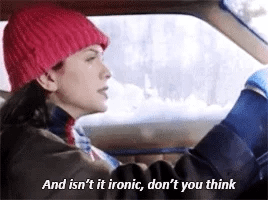For both readers and writers, I’ve been sharing part of my ginormous handout on endings, piece by piece. Here’s Part 1, and here’s Part 2…
And here is Part 3, talking about endings and the ways they address meaning. We’re heavy on Annie Proulx this time.
Of course every ending somehow addresses the meaning of the whole piece, hopefully in a subtler way than an Aesop’s fable with a clearly labeled moral on the end. But some of them address meaning directly, not in the space they allow for the reader to assign meaning, but by… you know, directly assigning meaning.
Here are some ways that might happen.
The Blatantly Philosophical:
The writer (and/or narrator) comes right out and tells you what the damn thing means.
From Annie Proulx’s The Shipping News (you need to know here that a character just came back to life at his own wake):
For if Jack Buggit could escape from the pickle jar, if a bird with a broken neck could fly away, what else might be possible? Water may be older than light, diamonds crack in hot goat’s blood, mountaintops give off cold fire, forests appear in mid-ocean, it may happen that a crab is caught with the shadow of a hand on its back, that the wind be imprisoned in a bit of knotted string. And it may be that love sometimes occurs without pain or misery.
Here’s the ending of George Eliot’s Middlemarch:
But the effect of her being on those around her was incalculably diffusive: for the growing good of the world is partly dependent on unhistoric acts; and that things are not so ill with you and me as they might have been is half owing to the number who lived faithfully a hidden life, and rest in unvisited tombs.
And a simpler one, from Alice Munro’s “Amundsen”:
Nothing really changes about love.
Obligatory warning: This can be pedantic and simplistic if done poorly. The message needs to be complex, interesting and new; the language needs to be gorgeous.
Other examples: The Great Gatsby
The Reflective:
This is the first-person (or close third-person) corollary to the philosophical ending; a character (usually a narrating character) is reflecting on the story/journey/life/present moment.
One question here is how much distance the character has from the events relayed.
We might have very little distance, as in J. D. Salinger’s The Catcher in the Rye:
…D.B. asked me what I thought about all this stuff I just finished telling you about. I didn't know what the hell to say. If you want to know the truth, I don't know what I think about it. I'm sorry I told so many people about it. About all I know is, I sort of miss everybody I told about. Even old Stradlater and Ackley, for instance. I think I even miss that goddam Maurice. It's funny. Don't ever tell anybody anything. If you do, you start missing everybody.
or years of distance, as in Jhumpa Lahiri’s “The Third and Final Continent”:
While the astronauts, heroes forever, spent mere hours on the moon, I have remained in this new world for nearly thirty years. I know that my achievement is quite ordinary. I am not the only man to seek his fortune far from home, and certainly I am not the first. Still, there are times I am bewildered by each mile I have traveled, each meal I have eaten, each person I have known, each room in which I have slept. As ordinary as it all appears, there are times when it is beyond my imagination.
The Revelation/Epiphany:
Perhaps nothing major happens right at the end, plot-wise (or maybe it does) but a character finally realizes something major about the world or herself. Maybe in the moment of the story, or maybe in the moment of the telling, or maybe somewhere in between. This is often more organic for a short story than for a novel.
From Megan Mayhew Bergman’s story “Housewifely Arts”:
My heart, she’d said. I can turn it off.
For years, I’d believed her.
But I know the truth now. What maniacs we are—sick with love, all of us.
Other examples: James Joyce’s “The Dead”
The Ironic:
It’s a more oblique way of philosophizing… By handing us the opposite of the story’s meaning, the author lets us see the meaning ourselves.
When the story does this overtly, I think of it as philosophical irony.
From Annie Proulx’s “People in Hell Just Want a Drink of Water”:
That was all sixty years ago and more. Those hard days are finished… We are in a new millennium and such desperate thing no longer happen.
You believe that you’ll believe anything.
And of course there’s dramatic irony, too – when we still know more than the character knows, at the end.
In Steve De Jarnatt’s story “Rubiaux Rising,” a man has just been rescued, during Hurricane Katrina, from the attic he was trapped in:
As they set him down on the overpass near the Dome with the huddled bunches of others, Rubiaux knows his suffering is finally over—help and comfort will surely be coming soon.
And there’s the special kind of irony in which the character has learned exactly the wrong lesson from the situation, or—perhaps—is deluding herself. We might call this moral irony.
From George Orwell’s 1984:
But it was all right, everything was all right, the struggle was finished. He had won the victory over himself. He loved Big Brother.
Okay, <schoolmarm voice> I hope we’ve all learned a lesson here.
We’re not done yet!
Next weekend, I’ll post about endings that emphasize musicality or lyricism or sound.







I’d forgotten how much I love that closing from Proulx. The last sentence would be an eye roller if not for the lyrical reflection on possible impossibilities before it.